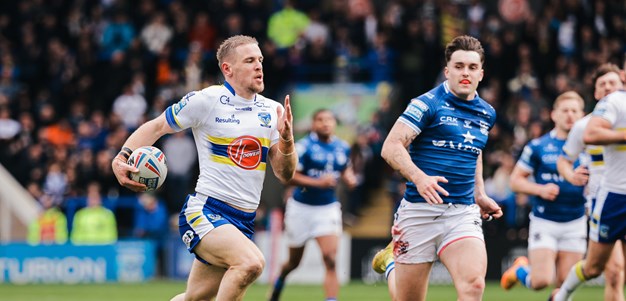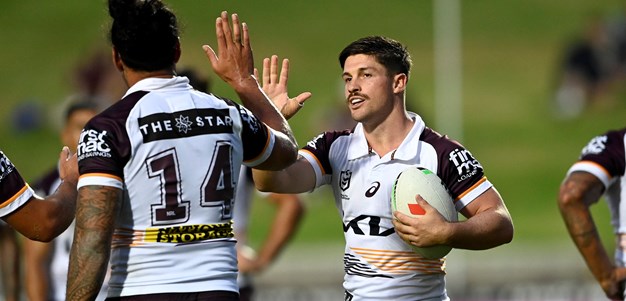What hurts Preston Campbell most was that he wasn't able to reach them in time.
The tragic passing earlier this year of under-20s players Mosese Fotuaika and Alex Elisala again reinforced to Campbell that, like himself a decade earlier, there are rugby league players at the highest level suffering in silence.
Campbell is taking his story of ongoing battles with depression to NRL and Holden Cup squads at each of the 16 clubs, hoping that by reaching out he is able to encourage at least one player to step forward and ask for help.
Speaking in front of the Gold Coast Titans NRL squad on Wednesday – which included some former teammates – Campbell related how that just months after winning the Dally M Medal in 2001 he tried to take his own life.
It's a confronting aspect to his presentation, 'Players' State of Mind' that he has developed with the assistance of the NRL and the Black Dog Institute that encourages players to look after each other and not be afraid to seek help.
"It makes you think about your time. That may seem a little bit selfish but I did think about those young guys and what it was that caused them to do it," Campbell said. "If you haven't been through anything like that before a lot of questions go into your head. People often think they should have brushed it off or toughened up and got on with things but it's really not that easy.
"You can't really bounce back by yourself, it's very difficult, but for me it hit home because I was there and I'd done it. I never knew these guys but I felt like I had a connection with them; anyone that's been through it I feel like I have a connection with them.
"It did hit me pretty hard and I'm really glad that the NRL have taken steps to improving the way these young boys think."
Depression and mental health diseases hit people of all ages and from all walks of life but Campbell does concede that the extra pressures placed on young players brought into NRL clubs could exacerbate an existing condition.
"Depression hits people as young as nine or as old as 60 or 70 so it can hit all ages but the environment these young players go through... Being away from home, they come from the bush or from different countries, it's very hard for them and actually fitting in [can be difficult]," he said. "The hard training is then basically the cherry on top for them.
"For me I didn't think I could ever get out of it. I didn't know what to do; I felt like I had no one to talk to in the first instance and I didn't know what it was and what to talk about. It was very scary but I had people around me that seen things different in me and I had the support I needed to be able to get out of what I was in and move forward in life.
"Just in the last three or four months when the presentation was sent out to the clubs we've had people come forward saying that they need help, which has been great.
"That's why I put my hand up to share my story, in the hope that people would come forward and say, 'Hey, that's what's going on with me.'"
If you feel like you would like to speak to someone call Lifeline on 13 11 14.


